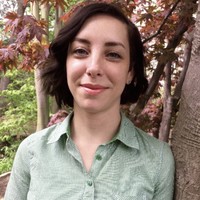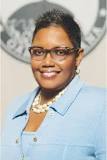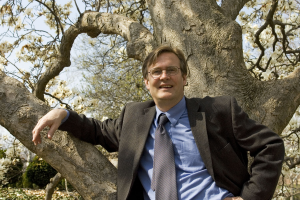DOWNLOAD THE SLIDE HERE
The webinar was hosted by Island Press and the Great Lakes Protection Foundation. Vacant lots, so often seen as neighborhood blight, have the potential to be a key element of community revitalization. As manufacturing cities reinvent themselves after decades of lost jobs and population, abundant vacant land resources and interest in green infrastructure are expanding opportunities for community and environmental resilience.
Vacant to Vibrant explains how inexpensive green infrastructure projects can reduce stormwater runoff and pollution, and provide neighborhood amenities, especially in areas with little or no access to existing green space. Sandra Albro offers practical insights through her experience leading the five-year Vacant to Vibrant project, which piloted the creation of green infrastructure networks in Gary, Indiana; Cleveland, Ohio; and Buffalo, New York.
Vacant to Vibrant provides a point of comparison among the three cities as they adapt old systems to new, green technology. An overview of the larger economic and social dynamics in play throughout the Rust Belt region establishes context for the promise of green infrastructure.
Meet the Panelists
Sandra Albro, author of Vacant to Vibrant

At Cleveland Botanical Garden, a branch of Holden Forests & Gardens, Sandra developed and secured external funding to sustain a research program in applied urban ecology, specializing in stormwater management and vacant land reuse in post-industrial cities in the Great Lakes region. With a focus on multi-agency cooperation and process innovations that promote systemic adoption of green infrastructure, she investigates improvements to existing soils and addition of plants improve the ecological and social value of vacant urban land. Her topics of interest include soil remediation, stormwater management, low-maintenance plants, aesthetic improvement, and human use of vacant land in urban communities.
Mayor Karen Freeman-Wilson

Karen Freeman-Wilson has been the mayor of her hometown of Gary, Indiana since January 2012. She is the first female to lead the “Steel City” and the first African-American female mayor in the state of Indiana. Freeman-Wilson has served in the public arena most of her professional life. She was previously the Indiana Attorney General, the Director of the Indiana Civil Rights Commission, and the presiding judge of the Gary City Court. She was also a leader in the national drug court movement having served as the CEO of the National Association of Drug Court Professionals and Executive Director of the National Drug Court Institute.
Freeman-Wilson is a graduate of Harvard College and Harvard Law School. Freeman-Wilson has been honored by the White House Office of Drug Control Policy, Governors of Indiana and various organizations throughout the United States.
Ian Leahy

Ian has served as American Forests’ Director of Urban Forestry since 2014. Through the award-winning Community ReLeaf initiative, he has developed a model that helps cities across the country build long-term capacity for managing their urban forests and addressing tree equity issues in low-income communities. He has helped position American Forests as a national leader in integrating urban forestry expertise into the processes of building a city’s tree canopy. Prior to American Forests, Ian served as the State Urban and Community Forestry Coordinator for the District of Columbia.
Timothy Beatley, Moderator

Timothy Beatley is the Teresa Heinz Professor of Sustainable Communities, in the Department of Urban and Environmental Planning, School of Architecture at the University of Virginia, where he has taught for the last twenty-five years. Much of Beatley’s work focuses on the subject of sustainable communities, and creative strategies by which cities and towns can fundamentally reduce their ecological footprints, while at the same time becoming more livable and equitable places. Beatley believes that sustainable and resilient cities represent our best hope for addressing today’s environmental challenges.
